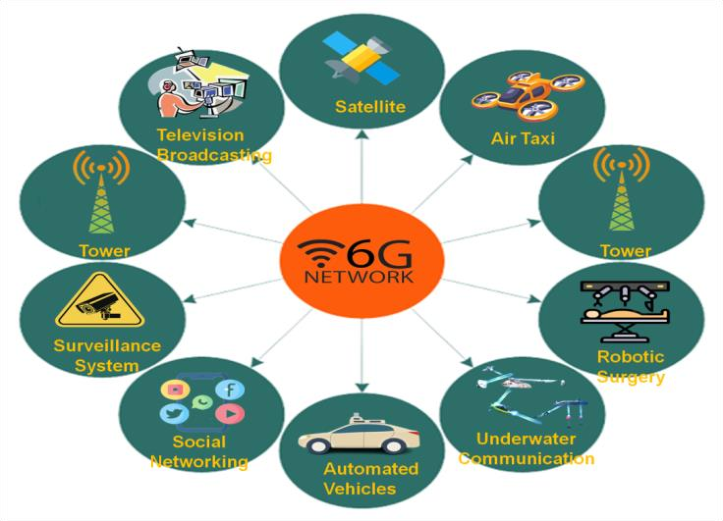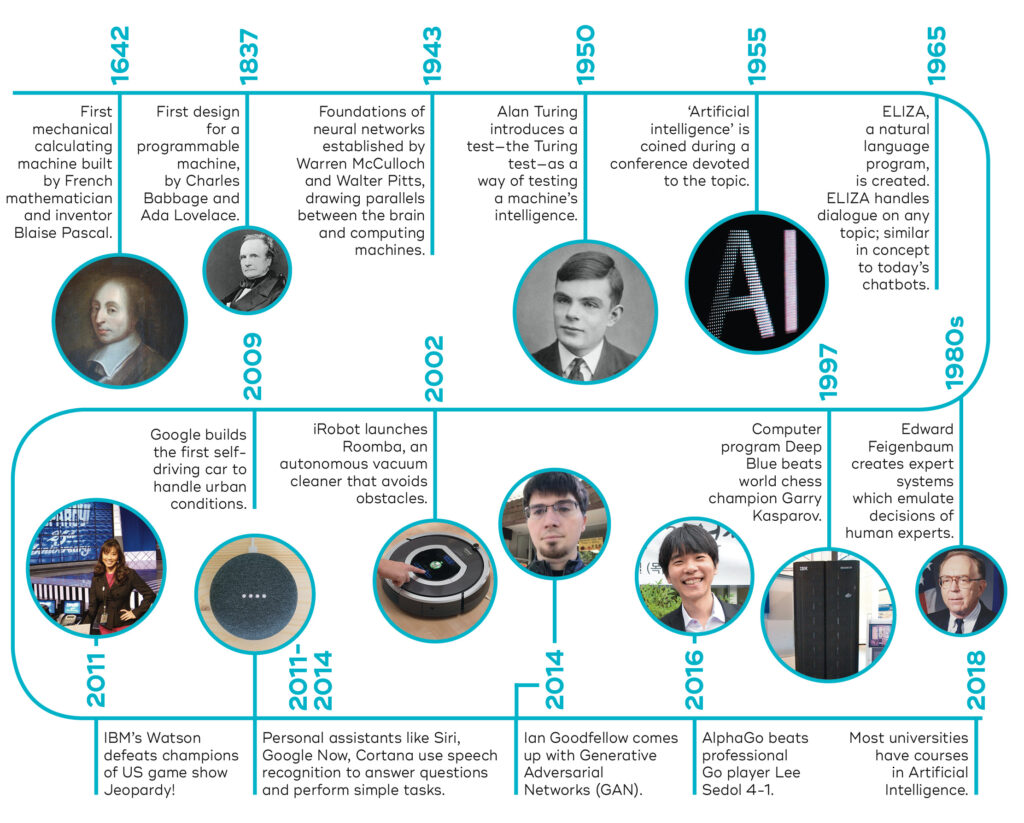What is technology?
Technology is evolving at an unprecedented pace, transforming how we live, work, and connect. From artificial intelligence to sustainable energy solutions, the innovations of today are laying the groundwork for a future that once seemed like science fiction. In this blog, we’ll explore some of the most exciting advancements in the tech world and what they mean for us.

1.Artificial Intelligence: Beyond the Hype
Artificial intelligence (AI) has moved from buzzword to backbone in many industries. Whether it’s powering virtual assistants, optimizing supply chains, or even aiding medical diagnoses, AI’s capabilities are expanding daily. Recent developments, like advanced language models and real-time data processing, are enabling more intuitive and efficient systems. The question isn’t whether AI will change the world—it’s how we’ll adapt to its growing presence
 Businessman touching the brain working of Artificial Intelligence (AI) Automation, Predictive analytics, Customer service AI-powered chatbot, analyze customer data, business and technology
Businessman touching the brain working of Artificial Intelligence (AI) Automation, Predictive analytics, Customer service AI-powered chatbot, analyze customer data, business and technology
2.Connectivity: The 6G Horizon
While 5G is still rolling out globally, researchers are already eyeing 6G. Expected to launch around 2030, 6G could deliver speeds up to 100 times faster than 5G, with near-instantaneous latency. This leap could unlock immersive virtual reality, holographic communication, and smarter IoT ecosystems. The way we connect—both with devices and each other—is on the cusp of another transformation.

3.Cybersecurity in a Digital Age
With great innovation comes great responsibility. As our reliance on tech grows, so do the risks. Cyberattacks are becoming more sophisticated, targeting everything from personal data to critical infrastructure. Advances in encryption, AI-driven threat detection, and blockchain are helping us stay ahead of the curve. The challenge? Balancing accessibility with security in an increasingly connected world.

What’s Next?
The tech landscape is a thrilling mix of opportunity and uncertainty. As we push boundaries, ethical questions—like AI bias or data privacy—will demand answers. But one thing is clear: technology isn’t just shaping the future; it’s shaping us. Staying informed and adaptable will be key to thriving in this brave new world.

A Brief History of Technological Progress
To understand where we are today, it’s worth glancing back at how far we’ve come. The earliest technological leaps—like fire, agriculture, and the wheel—laid the groundwork for human survival and societal organization. Fast forward to the Industrial Revolution in the 18th century, and we see machines transforming manual labor into mass production, ushering in an era of urbanization and economic growth. Electricity, the steam engine, and later the telephone shrank distances and connected the world in ways previously unimaginable.
The 20th century brought the digital revolution, arguably the most transformative period in technological history. The invention of the transistor in 1947 paved the way for computers, which evolved from room-sized behemoths to pocket-sized smartphones. The internet, born in the late 20th century, became the great equalizer, democratizing access to information and creating a global village. By the early 21st century, technology wasn’t just a tool—it was a way of life.

The Current Landscape: Technology in 2025
As of April 2025, technology is more integrated into our daily lives than ever before. Artificial intelligence (AI) has matured beyond simple chatbots and recommendation algorithms. Today, AI systems like me—Grok 3, created by xAI—are capable of complex reasoning, creative problem-solving, and even assisting with scientific discovery. Industries such as healthcare, education, and transportation are being reshaped by AI-driven innovations. For example, AI-powered diagnostics can now detect diseases with greater accuracy than human doctors, while autonomous vehicles are inching closer to becoming a common sight on roads worldwide.
Quantum computing, once a theoretical concept, is starting to bear fruit. Companies like IBM and Google have made strides in building quantum processors that promise to solve problems—like drug discovery or climate modeling—that are intractable for classical computers. Meanwhile, biotechnology is revolutionizing medicine. CRISPR gene-editing technology is being used to treat genetic disorders, and synthetic biology is enabling the creation of lab-grown organs, reducing the dependency on donor transplants.The energy sector is also undergoing a technological renaissance. Renewable energy sources—solar, wind, and hydrogen—are becoming more efficient and affordable, thanks to advancements in materials science and energy storage. Tesla’s next-generation batteries and breakthroughs in fusion energy hint at a future where fossil fuels could become obsolete.

The Social Impact of Technology
Technology’s influence extends far beyond gadgets and infrastructure—it shapes societies, economies, and cultures. One of the most significant impacts is connectivity. In 2025, 5G and emerging 6G networks have made high-speed internet ubiquitous, even in remote areas. This has empowered billions of people to access education, healthcare, and economic opportunities online. Social media platforms, though sometimes controversial, continue to amplify voices, spark movements, and foster global communities.
However, this hyperconnectivity comes with challenges. Privacy has become a luxury as data collection by corporations and governments grows more pervasive. Cybersecurity threats, from ransomware to state-sponsored hacking, loom larger than ever. The digital divide, while narrowing, still leaves millions without access to the tools needed to thrive in a tech-driven world.
Economically, technology is a double-edged sword. Automation and AI have boosted productivity and created new industries, but they’ve also displaced workers in sectors like manufacturing and retail. The gig economy, fueled by platforms like Uber and Upwork, offers flexibility but often lacks the stability of traditional employment. Governments and businesses are grappling with how to reskill workforces and ensure equitable growth in this rapidly changing landscape.
Culturally, technology has redefined how we express ourselves and consume media. Streaming services, virtual reality (VR), and augmented reality (AR) have transformed entertainment, blending the physical and digital worlds. Artists use AI tools to compose music or generate visuals, while gamers immerse themselves in metaverse-like environments that blur the line between reality and simulation.

The Ethical Dilemmas of Progress
With great power comes great responsibility, and technology in 2025 raises profound ethical questions. AI, for instance, can optimize decision-making but also perpetuate biases if not carefully designed. Who decides how AI systems are trained, and who holds them accountable? Similarly, biotechnology’s ability to edit genes sparks debates about “designer babies” and the potential widening of social inequalities.
Climate technology offers hope in combating global warming, yet geoengineering solutions—like solar radiation management—carry risks of unintended consequences. Privacy concerns escalate as facial recognition and surveillance tech become more sophisticated. In an era where technology can influence elections, sway public opinion, and even alter human biology, the need for ethical frameworks and global cooperation has never been more urgent.
The Future: What Lies Ahead?
Looking forward, the trajectory of technology suggests both promise and uncertainty. By 2030, we might see quantum computers cracking encryption that protects today’s digital world, necessitating entirely new cybersecurity paradigms. AI could achieve levels of general intelligence, raising questions about its role in governance, creativity, and even philosophy—can a machine truly “think” or “feel”?
Space exploration, fueled by private companies like SpaceX and xAI’s ambitious goals, might lead to permanent human settlements on Mars or the Moon. Biotechnology could extend human lifespans dramatically, challenging societal norms around aging and resource allocation. Meanwhile, climate tech might finally tip the scales toward sustainability, with carbon capture and fusion energy stabilizing the planet’s future.
The concept of the “singularity”—a hypothetical point where AI surpasses human intelligence—looms on the horizon. While some see it as a utopian merger of human and machine potential, others warn of existential risks. Whatever the outcome, the decisions we make today will shape whether technology becomes a tool for liberation or a source of division.

